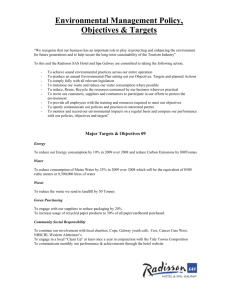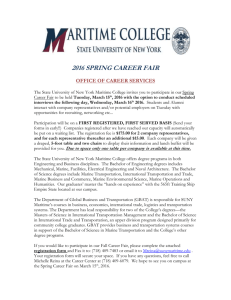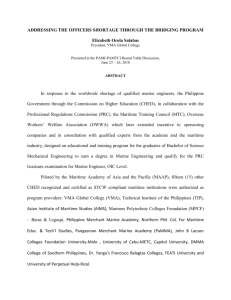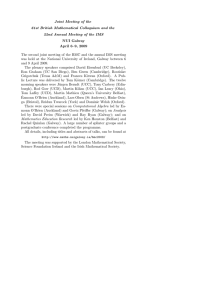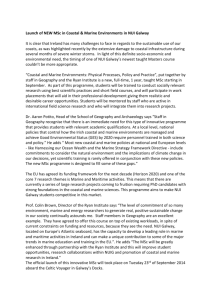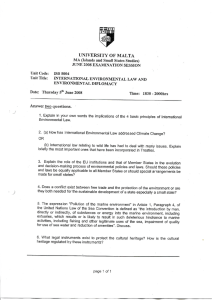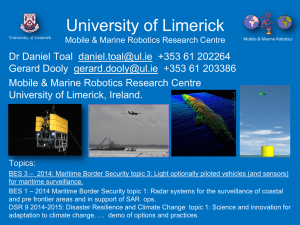FROM GALWAY TO ABERDEEN… TO OOSTENDE – PROGRESS IN
advertisement
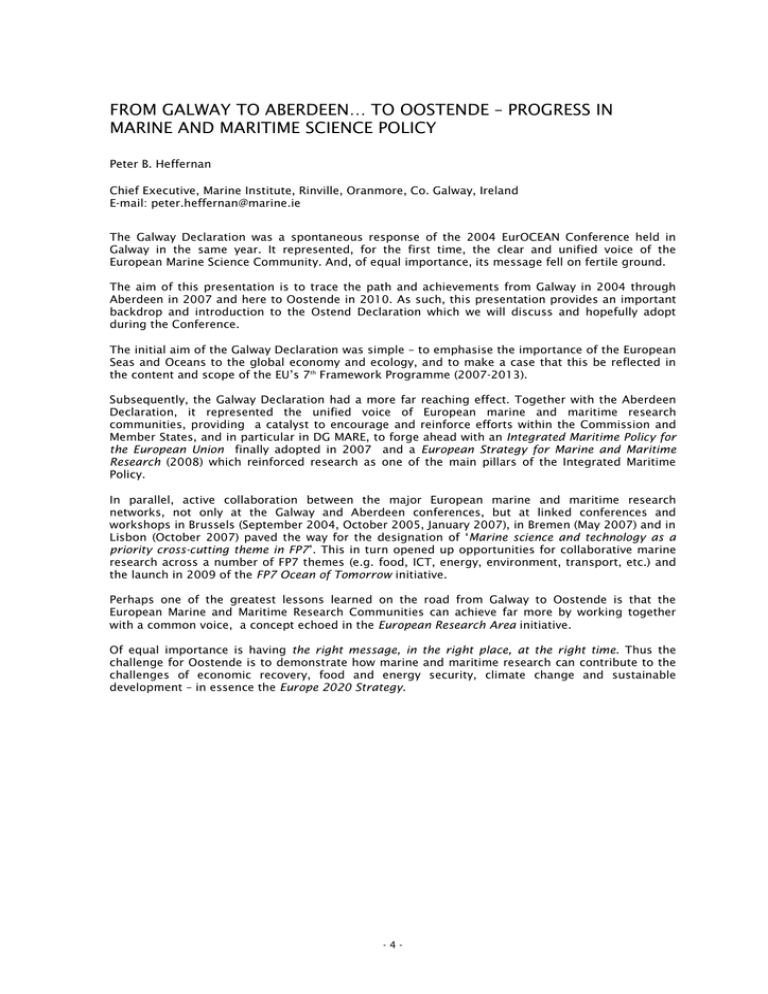
FROM GALWAY TO ABERDEEN… TO OOSTENDE – PROGRESS IN MARINE AND MARITIME SCIENCE POLICY Peter B. Heffernan Chief Executive, Marine Institute, Rinville, Oranmore, Co. Galway, Ireland E-mail: peter.heffernan@marine.ie The Galway Declaration was a spontaneous response of the 2004 EurOCEAN Conference held in Galway in the same year. It represented, for the first time, the clear and unified voice of the European Marine Science Community. And, of equal importance, its message fell on fertile ground. The aim of this presentation is to trace the path and achievements from Galway in 2004 through Aberdeen in 2007 and here to Oostende in 2010. As such, this presentation provides an important backdrop and introduction to the Ostend Declaration which we will discuss and hopefully adopt during the Conference. The initial aim of the Galway Declaration was simple – to emphasise the importance of the European Seas and Oceans to the global economy and ecology, and to make a case that this be reflected in the content and scope of the EU’s 7th Framework Programme (2007-2013). Subsequently, the Galway Declaration had a more far reaching effect. Together with the Aberdeen Declaration, it represented the unified voice of European marine and maritime research communities, providing a catalyst to encourage and reinforce efforts within the Commission and Member States, and in particular in DG MARE, to forge ahead with an Integrated Maritime Policy for the European Union finally adopted in 2007 and a European Strategy for Marine and Maritime Research (2008) which reinforced research as one of the main pillars of the Integrated Maritime Policy. In parallel, active collaboration between the major European marine and maritime research networks, not only at the Galway and Aberdeen conferences, but at linked conferences and workshops in Brussels (September 2004, October 2005, January 2007), in Bremen (May 2007) and in Lisbon (October 2007) paved the way for the designation of ‘Marine science and technology as a priority cross-cutting theme in FP7’. This in turn opened up opportunities for collaborative marine research across a number of FP7 themes (e.g. food, ICT, energy, environment, transport, etc.) and the launch in 2009 of the FP7 Ocean of Tomorrow initiative. Perhaps one of the greatest lessons learned on the road from Galway to Oostende is that the European Marine and Maritime Research Communities can achieve far more by working together with a common voice, a concept echoed in the European Research Area initiative. Of equal importance is having the right message, in the right place, at the right time. Thus the challenge for Oostende is to demonstrate how marine and maritime research can contribute to the challenges of economic recovery, food and energy security, climate change and sustainable development – in essence the Europe 2020 Strategy. -4-
